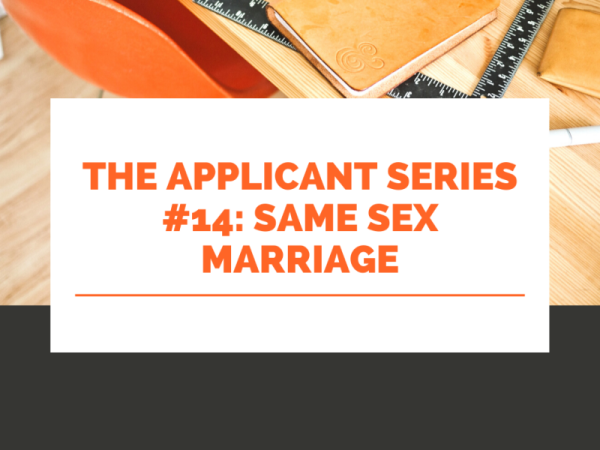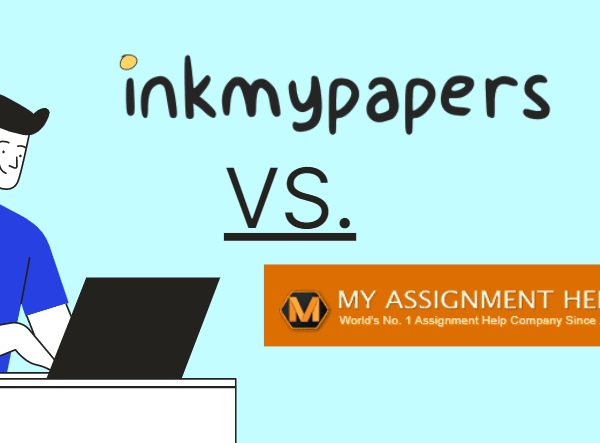The Applicant Series showcases works done by hopeful writers who have applied with inkmypapers over the years. The results and comments will be provided first, followed by the actual essay/report written by the applicant
Applicant’s Results: Failed
Title: Write a 1,000 word essay on: “Should the expanded DSA scheme for pupils entering Secondary 1 be further revised for it to be reserved only for non-academic talent?”
Comments: Overall, the applicant did pretty well for this test piece. Arguments are well structured but has several critical flaws. Firstly, the instructions clearly state 1,000 words limit for the piece but the applicant went ahead and write 1,500 words.
While we appreciate writers who are detailed with their work, going 50% over the word count is being over-zealous and shows a clear disregard for instructions. We did allow the applicant to partake in our training program but did not eventually hire her as she did less than ideal during her training program. You can see more comments for the piece below.
Singapore’s education system aims at nothing short of excellence for its students. In a short span of 50 years, Singapore, being a former British colony, now boasts a highly skilled workforce where more than half are university graduates. Literacy rates have increased rapidly and students from Singapore have become among the best in the world when it comes to international exam scores. Singaporean parents put their kids through rigorous education to give them a head start. It is common for them to organize enrichment activities for their children at a very young age so that early development can be ensured (Nayak, S., 2016).
In 2004, the Direct School Admission (DSA) scheme was introduced to recognize students’ achievements and strengths in non-academic areas namely, sports and arts. Students may be admitted should they be well-suited for the schools with specific niches. The expansion of the DSA scheme means lifting the DSA admissions cap of 10 percent for autonomous schools, 5 percent for niche programs, and 20 percent for independent schools. There has been much criticism for the DSA scheme because of its deviation from its original objective of recognizing students’ strengths and achievements in areas aside from grades which led to giving academically bright students early entry to their secondary school of choice (Yang, C., 2017).
This essay will shed light on the benefits of DSA to both academic and non-academically-inclined students about to enter secondary schools. This essay will consider a rather beguiling question: Should the expanded DSA scheme for pupils entering Secondary 1 be further revised for it to be reserved only for non-academic talent?
Comment: The outline for the essay only appears in the third paragraph and after 250 words. This is not recommended at all as outline for the essay should appear at the end of an essay’s introduction, which by itself should be about 10% of the essay word length.
There is no denying the fact that the expansion of the DSA has its benefits for both non-academic and academically-inclined students. Firstly, it lets secondary schools broaden their admission criteria beyond Primary School Leaving Examination (PSLE) scores which means that students can secure a Secondary 1 place early (Yang, C., 2017).
Aside from that, schools will draw in different students and will cultivate diversity into the student bodies, with both academic and non-academically talented students alike through this scheme. Diversity among students directly impacts their performance. Studies show that students work better in a diverse environment which enables them to concentrate and push themselves further when there are people of other socio-economic or racial backgrounds working alongside them. This promotes creativity, as well as overall better education, as those with differing views are able to collaborate to create more efficient solutions (“The Benefits of Diversity in Schools,” 2017).
Moreover, students will have equal opportunity to enter a school prior to the PSLE. Mary Seah, Tanjong Katong Girls’ School principal, said the expansion has sent a “strong message” for students to pursue their dreams and non-academic talents “without fear” (Baharudin, H., & Tan, A., 2017). The DSA scheme enables students who have specific academic skills such as language or math as well as those with specific non-academic skills such as art and sports, an equal chance of getting into a good secondary school.
However, despite having its benefits, the DSA is starting to get abused. According to Sandra Davie, a Senior Education Correspondent, the DSA scheme has become popular as parents began to see it as a way for their children to enter schools that offer the IP even before the PSLE results are out. Aside from that, Jalan Besar GRC MP Denise Phua from the Government Parliamentary Committee for Education said in Parliament that it is no secret that the DSA benefits children who have more resources from a young age – referring to parents who enroll their children to special classes to better prepare them for the DSA (Davie, S., 2016).
In addition, for some parents, it is an intricate strategy to get their children one step closer to the “right” school. This attitude of “gaming the system,” as Sandra Davie puts it, contradicts the core objective of the DSA scheme which is meant to give those with other talents aside from academics a chance to excel. For other parents, the DSA scheme has become a necessity as their kids are more talented in other areas aside from academics. This strategy favors those students from more well-off families. Students should not be put at a disadvantage because of their socio-economic background.
Next, top schools have started to use the scheme to reserve not just the top sports or arts talent, but also the top academic talent. According to some accounts by several parents, most competitive schools such as Raffles Institute admit at least half of their students through DSA including those from the gifted education scheme (Davie, S., 2016). This was also mentioned in an article written by Mr. William Tan Whee Kiem from The Straits Times, where he openly disagreed with Sandra Davie’s suggestion to exclude Gifted Education Program (GEP) pupils from the DSA scheme. He said that it is not true that GEP pupils will definitely top the PSLE as the GEP was not designed in preparation for PSLE (Tan, W., 2016). However, the PSLE only covers subjects such as language, math and science (“PSLE Syllabuses Examined in 2017,” 2017). This already puts students who are not academically-inclined at a disadvantage.
The Ministry Education website itself indicated that the scheme “seeks to promote holistic education and provide students an opportunity to demonstrate a more diverse range of achievements and talents.” Fortunately, the expansion of the scheme also means the MOE is tackling the problem of gaming the system and returning to the scheme’s original intent. In addition, Mrs. Lydia Wong, who has two primary school-going children, said: “For years, parents have tried to game the system, such as by sending their kids for special classes to prepare them. But I am glad that MOE is tackling the problem and returning the DSA to its original intent to recognize specific talents. Only then can we help kids to nurture their gifts” (Yang, C., 2017). The selection process for the scheme will be refined to better recognize specific talents and stray from recognizing strong general academic abilities (“From expanding DSA to new ITE diploma: 6 things to know about the latest education changes,” 2017).
According to Mr. Ng, an Education Minister, those students with strong general academic abilities “would already be able to qualify for schools with their PSLE results.” Instead, schools should focus their efforts on “identifying sport talent, artistic talent or academic talent in specific domains such as languages, math or science. Mr. Ng further highlighted how the DSA is supposed to work through the example of CHIJ St. Theresa’s Convent’s hockey team where a few members joined the school, known for its hockey prowess, via the DSA as “they fell in love with hockey at primary school, and wanted to further develop their talent” (Yang, C. 2017).
Furthermore, Seren Seah, 28, whose son in Primary 6 hopes to make use of the DSA through volleyball, said she did not consider IP schools as her son would not cope well there. She said “DSA helps students who are not good at studying. At least they have something else they are good at” (Yeo, S. 2016). In a speech given by the Minister of Education, Ng Chee Meng, he said “An inclusive education system is a critical lever to close societal gaps and promote social mobility. While we cannot ensure equal outcomes, we must provide children equal access to opportunities in all our schools. Ms Denise Phua and Dr Lim Wee Kiak asked for an update on what MOE is doing further to level the playing field for students from disadvantaged backgrounds, and provide dedicated support to those who are academically weaker” (Meng, N., 2016).
In 2012, the MOE released figures showing that 40 percent of students admitted to schools based on the DSA scheme would not have gotten in if it were based on their PSLE results. School admission via DSA scheme should meet the core objective of the program – to recognize a diverse range of talents in non-academic areas (Davie, S., 2016). According to Sandra Davie, PSLE already gives the advantage to academically bright kids, and the DSA scheme would then allow students to be assessed based on their other talents and not just their academic test scores.
Given all these points, it can be concluded that the expanded DSA scheme for pupils entering Secondary 1 should be further revised for it to be reserved only for non-academic talent. Although having it open to students with academic and non-academic strengths equal opportunity and exposure to diversity, it will only further benefit those with already stronger academic skills. As already mentioned above, the PSLE only covers subjects such as language, math and science. Many students who are already academically inclined would be able to get into their school of choice based on their PSLE scores anyway, being adept in general academics. Students who have non-academic strengths should be the ones prioritized in the DSA scheme since they do not have the academic skills to excel in the PSLE. They are not as good at studying, therefore, dedicated support should be provided for those who are academically weaker. DSA should focus on finding students with specific talents in non-academic areas.
0 Comments
Leave a reply
You must be logged in to post a comment.


